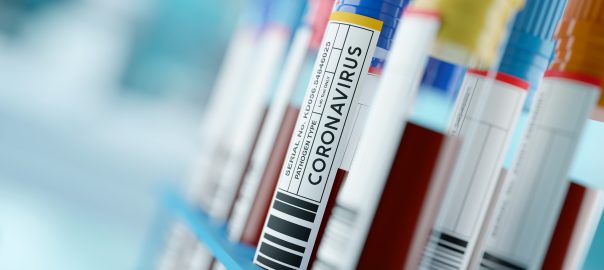WASHINGTON, D.C. – The National Consumers League, the American Clinical Laboratory Association (ACLA) and America’s Health Insurance Plans (AHIP) joined nearly 50 leading stakeholders representing patients, employers, clinical laboratories, health insurance providers and other leaders from across health care community yesterday in sending a letter to congressional leadership requesting dedicated federal funding for the critical testing needed to reopen the country.
“Every American, especially essential workers, clinicians and physicians on the front lines of health care, should have access to the COVID-19 tests they need,” said NCL Executive Director Sally Greenberg. “To reduce transmission of the virus, improve public health, increase surveillance capacity and help Americans return to work, school and other activities, Congress must provide robust dedicated funding for testing.”
“Testing is one of the most important tools we have to combat this crisis, both for identifying the virus and also for preventing its spread in communities across the country,” said ACLA President Julie Khani. “It’s vital that the federal government designate the resources to support expanded access to testing.”
The letter was signed by a 49 organizations from across health care community, including 1in9 L.I. Breast Cancer Organization/Hewlett House, Academy of Managed Care Pharmacy, ACLA, ADAP Advocacy Association, AdvaMedDx, AHIP, AMDA-The Society for Post-Acute and Long-Term Care Medicine, American Association for Respiratory Care, American Association of Neurological Surgeons, American Association of Nurse Practitioners, American College of Physicians, American Geriatrics Society, American Health Care Association, American Society for Microbiology, America’s Physician Groups, APS Foundation of America, Inc, Arizona Bioindustry Association, Inc. (AZBio), BioKansas, Black Women’s Health Imperative, Blue Cross Blue Shield Association, Business Group on Health, Business Roundtable, California Hepatitis C Task Force, California Life Sciences Association (CLSA), Community Access National Network (CANN), Congress of Neurological Surgeons, Cutaneous Lymphoma Foundation, Healthcare Leadership Council, ICAN, International Cancer Advocacy Network, Infectious Disease Society for America (IDSA), International Association of Hepatitis Task Forces, International Pemphigus Pemphigoid Foundation, Johns Hopkins Center for Health Security, LeadingAge, Lupus and Allied Diseases Association, Inc., March of Dimes, Michigan Biosciences Industry Association (MichBio), National Association of Area Agencies on Aging (n4a), National Association of Manufacturers, National Consumers League, National Health Council, National Hispanic Medical Association, National Retail Federation, New Jersey Rheumatology Association, Oncology Managers of Florida, the Gerontological Society of America, the Society for Healthcare Epidemiology of America, U.S. Chamber of Commerce and the Virginia Public Health Association.
Highlights of the letter are included below. To read the full letter, click here.
- “Swift action is needed to ensure that every American, especially essential workers, frontline healthcare physicians and other clinicians and those at disproportionate risk for COVID-19 have access to vital COVID-19 testing, whether for diagnostic, occupational, return-to-school, public health or virus monitoring purposes.”
- “Expanded access to COVID-19 testing for all individuals, regardless of their coverage status or purpose for receiving the test (i.e. diagnostic, public health or return-to-office), will require additional dedicated and robust federal funding. Without such funding, and with demand increasing, Americans will only see a reduction in access to testing, as well disruptions in clinician, hospital, and laboratory payments, diminished public health surveillance capacity, and higher insurance premiums – all while millions of Americans begin to seek testing in exponential numbers to facilitate return to work, school and other normal activities.
- “We share the goal of safely reopening the economy and returning to normal business, but this will require a sustained federal investment in testing facilitated by the public health and existing health care delivery system. Such a commitment will serve to support reopening and help to prevent and mitigate the spread of COVID-19. Dedicated federal funding, and clear coverage guidelines are critical for the scale and degree of testing that is needed to reopen, to reduce the risk of transmission, and to understand the progression of the disease and aid in development of better treatments and vaccines.”
###
About the National Consumers League (NCL)
The National Consumers League, founded in 1899, is America’s pioneer consumer organization. Our mission is to protect and promote social and economic justice for consumers and workers in the United States and abroad. For more information, visit www.nclnet.org.
About the American Clinical Laboratory Association (ACLA)
ACLA is a not-for-profit association representing the nation’s leading clinical and anatomic pathology laboratories, including national, regional, specialty, hospital, ESRD and nursing home laboratories. The clinical laboratory industry employs nearly 295,000 people directly, and generates over 117,000 additional jobs in supplier industries. Clinical laboratories are at the forefront of personalized medicine, driving diagnostic innovation and contributing more than $106 billion to the nation’s economy.
